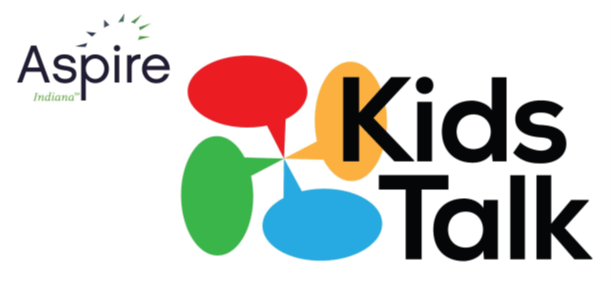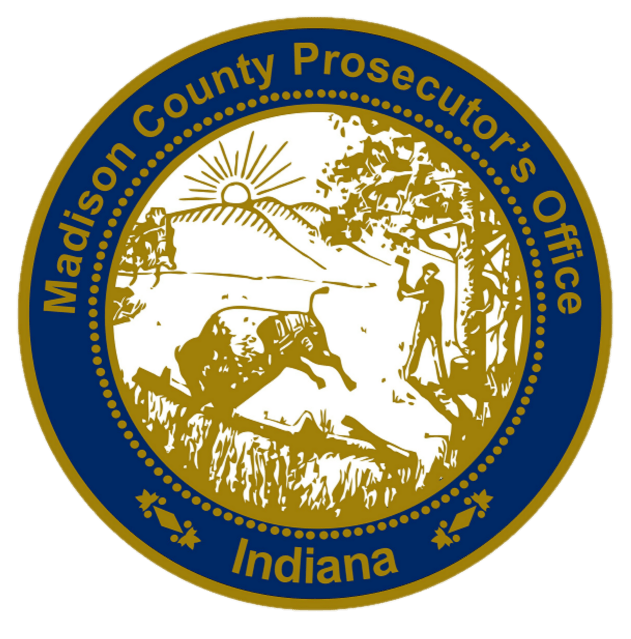Special Victims Unit
Founded in October 2021, the primary purpose of the Madison County Prosecutor’s Office Special Victims Unit is to effectively investigate and prosecute cases involving domestic violence, sexual assault, stalking, and human trafficking. The Special Victims Unit serves as a point of contact for law enforcement and survivors and hopes to educate our community on these critical issues and find collaborative solutions that will result in making Madison County a safer, more productive community. The Special Victims Unit is responsible for Madison County’s Sex Crimes Task Force, Domestic Violence Task Force, and Sexual Assault Response Team (SART).
The Madison County Prosecutor’s Office is proud to work alongside various local agencies, including but not limited to local law enforcement agencies, Alternatives Inc, Kids Talk Child Advocacy Center, the Indiana Department of Child Services, East Central Indiana CASA, and the Madison County Sexual Assault Treatment Center at Community Hospital Anderson.
SVU Members:
- Sex Crimes Prosecutor – Dan Kopp
- Director of Victim Services & Special Victims Unit – Betsy Baxter
- Domestic Violence Liaison Prosecutor – Jaime Nelson
- Domestic Violence Prosecutor – Kristin Willadsen
- Domestic Violence Specialist – Rileigh Van Skyock
- Sexual Assault Response Team Coordinator – Samantha Green

What is Kids Talk?
Kids Talk is the Child Advocacy Center located in Madison County. Kids Talk is a child-focused location where children can report abuse in a safe and comforting environment. Kids Talk provides protection and justice through a collaborative approach including law enforcement, the Indiana Department of Child Services, the prosecutor’s office, mental health, healthcare, and trained advocates. The interview conducted is neutral and fact-finding in nature. These interviews are always developmentally appropriate.
What is a forensic interview?
A forensic interview is a neutral, fact-finding interaction conducted by a specially trained interviewer in response to allegations of alleged maltreatment. The interview is viewed by the investigative team.
Why is it best that a child is interviewed here?
- We provide a safe and welcoming place for children to be heard.
- We bring the system to the child, by providing a single location for interviewing children rather than having a child taken from agency to agency throughout the investigation and potentially enduring multiple interviews.
- We utilize a certified forensic interviewer who can meet the informational needs of all investigative professionals involved while remaining child-focused.
- We facilitate a collaborative approach among investigative professionals that results in effective, efficient and child-centered casework.
- We ensure that parents or caregivers of the children are guided towards programs that will facilitate the healing process for the child and family.
Should I talk to my child about what happened?
No. If your child brings up the subject and wants to talk about it, listen without questioning. Be sure to reassure your child that they will be alright, and you are taking care of them. If your child does tell you additional information, please contact your law enforcement detective or family case manager.
How do I explain to my child what is going to happen?
It is helpful to inform your child that someone wishes to talk with him or her about what was reported. However, it is equally important not to rehearse with your child, or tell your child what to say. You may reassure your child, and give him/her permission to talk freely. You should let your child know that they will be in a safe place, and the adults that they are visiting will let them know exactly what is happening each step of the way. Avoid telling your child you will go somewhere or receive something after the interview. Avoid describing Kids Talk as a doctor’s office, as this often confuses children. Also, medical exams are not conducted at Kids Talk.
Can I be present with my child or the team during the interview?
No. Due to the nature of these investigations, it is necessary to provide a neutral setting for the child. It is also to ensure our team is fully focused on the child’s interview, and not distracted by a parent or guardian in the observation room. Copies of the interview are only released to appropriate members of the team and will not be released to any caregivers or guardians. Kids Talk uses recording equipment to document the interview. Copies of the interview are only released to law enforcement or DCS.
How long will my visit last?
All visits are different depending on the age of the child. Younger children participating in a forensic interview will go more quickly than older children and teenagers. Depending on the attention span, talkative nature of the child, severity and history of alleged abuse etc, interview times vary greatly. Please allow time for completion of intake paperwork, the forensic interview, and a post-interview meeting. Kids Talk will provide appropriate school/work excuses upon request.
Will someone talk with me during the interview?
The victim advocate will be available to provide support while the interview is taking place and following the interview. It is understandable that waiting for your child may be difficult. If any additional resources or services are needed, the victim advocate can help facilitate this.
What can I expect immediately following the interview?
At the end of the interview, the FCM from DCS and/or law enforcement may inform you about what will happen next. The DCS Family Case Manager and law enforcement are the only agencies able to answer questions regarding the child’s interview. The information they provide may be limited due to the fact that it is an ongoing investigation. They will tell you everything necessary to keep your child safe. Unless told otherwise, you and your child are free to leave after talking with the investigators.
What should I say to my child after the Kids Talk interview?
- Listen. If your child wants to talk about the interview, listen. Do not ask questions. Do not be
concerned if your child does not want to talk about the visit. Many children are “tired” of talking and
just want to “get on with it.” - Thank your child for talking and acknowledge his or her courage. Assure your child of your love and
support, no matter what was disclosed or determined during the visit. - Avoid leading your child to think that the interview will end the process. Some cases continue into the
legal system and require re-interviews or court testimony.
If you have additional questions prior to your visit, please contact Kids Talk at 765-641-8202. We look forward to serving your family.
What is disclosure?
Disclosure is when a child tells another person information not previously known — either because it's new information or because it's been kept secret. Disclosure can be a scary and difficult process for children. Over 800,000 children are confirmed as victims of abuse or neglect each year in the United States. Neglect is the most common form of child maltreatment, followed by physical abuse. Perpetrators are often family members, friends, and acquaintances. In fact, 95% of all victims know their perpetrators. Some children who have been sexually abused may take weeks, months, or even years to fully reveal what was done to them. Many children never tell anyone about the abuse. In general:
- Girls are more likely to disclose than boys
- School-aged children tend to tell a caregiver
- Adolescents are more likely to tell friends
- Very young children tend to accidentally reveal abuse, because they don’t have as much understanding of what occurred or the words to explain it
- Children are often reluctant to tell about being sexually abused.
Some reasons for this reluctance may include:
- Fear that the abuser may hurt them or their families
- Fear that they will not be believed, or will be blamed and get in trouble
- Worry that their parents will be upset or angry
- Fear that disclosing will disrupt the family, especially if the perpetrator is a family member or friend
- Fear that if they tell they will be taken away and separated from their family
What do I do if they disclose more?
Your reaction to the disclosure will have a big effect on how your child deals with the trauma of sexual abuse. Children whose parents/caregivers are supportive, heal more quickly from the abuse. To be supportive, it is important to stay calm. Hearing that your child has been abused can bring up powerful emotions, but if you become upset, angry, or out of control, this will only make it more difficult for your child to disclose.
- Believe your child, and let your child know that he or she is not to blame for what happened. Praise your child for being brave and for telling about the sexual abuse
- Protect your child by reporting any new disclosures to the detective or a member of the team
- Get help. In addition to getting any medical care, it is important to give the child an opportunity to talk with an advocate or mental health provider
- Reassure your child that he or she is loved and accepted by the family. Don’t make promises you can’t keep
- Keep your child informed about what will happen next
How do I talk to my child about body safety?
Teach them early!
- Name body parts and name them early. If your child is able to learn about
their eyes, nose, mouth, then they are ready to learn about their private
body parts as well. Use proper names- penis, vagina, breasts, etc.. If
children need to disclose abuse, nicknames can make their disclosure
confusing.
Teach them their body belongs to them
- Tell your child that their private parts are private because their body
belongs to only them! They have a right to say who touches and who
doesn’t touch their body.
Teach them about secrets
- We never keep secrets about our private body parts. Even if someone
bribes or threatens you, secrets about private body parts are not safe
secrets!
Teach them about consent
- Give your child freedom to make decisions about their body. For example,
instead of telling your child to “go give grandma a kiss goodbye”, say “go
tell grandma goodbye”. That allows the child to make the decision on how
they wish to express themselves while saying goodbye.
Discuss a safety plan
- What happens if someone touches them on a private part? Who should
they tell? Remind them they won’t be in trouble for talking about it!
Avoid Good Touch/Bad Touch
- Sometimes what we consider a bad touch may not feel bad to the child, it
actually may feel good.
Don’t limit your conversation to “Stranger Danger”
- The vast majority of child sexual abuse is committed by someone the
child knows, loves, and trusts.
Helpful Links and Resources

